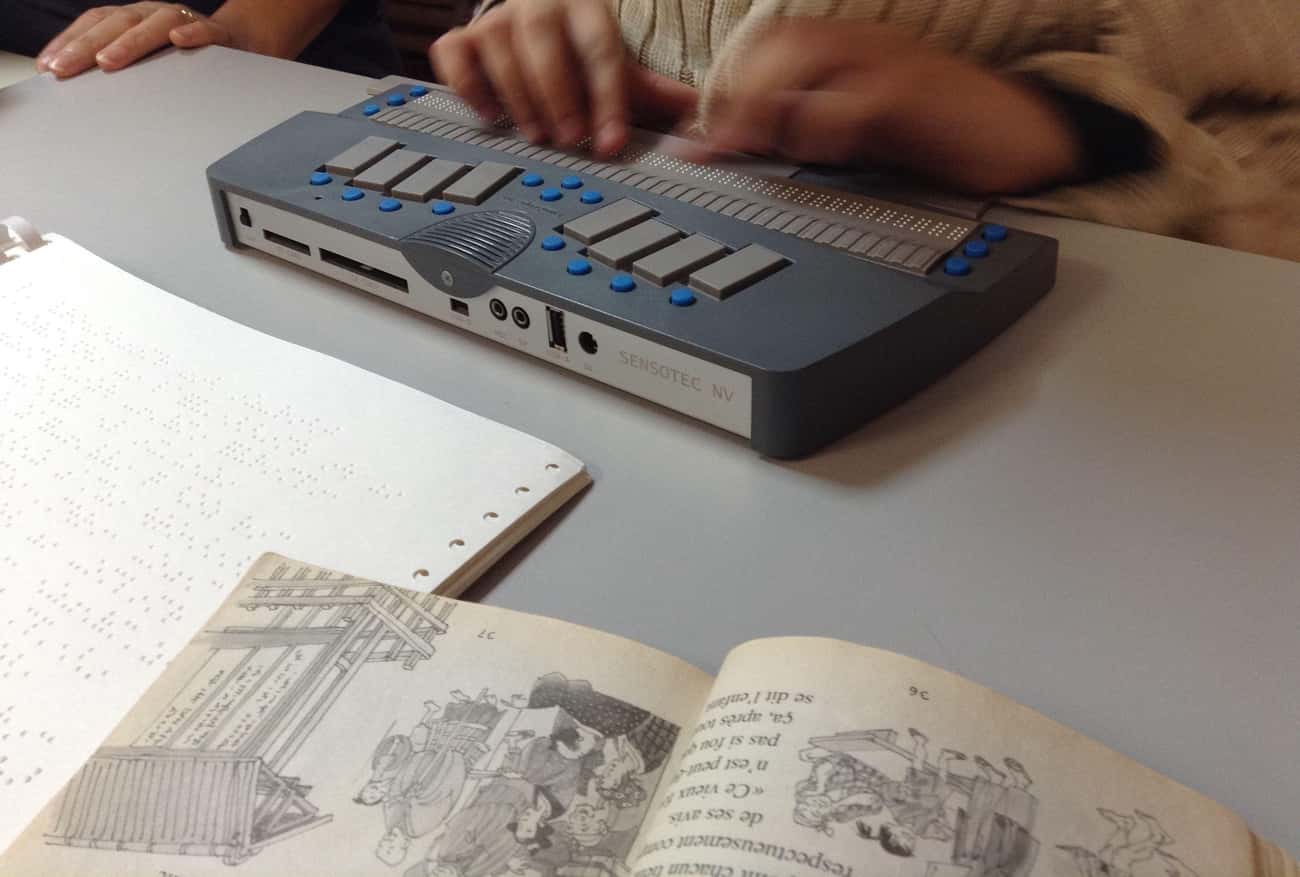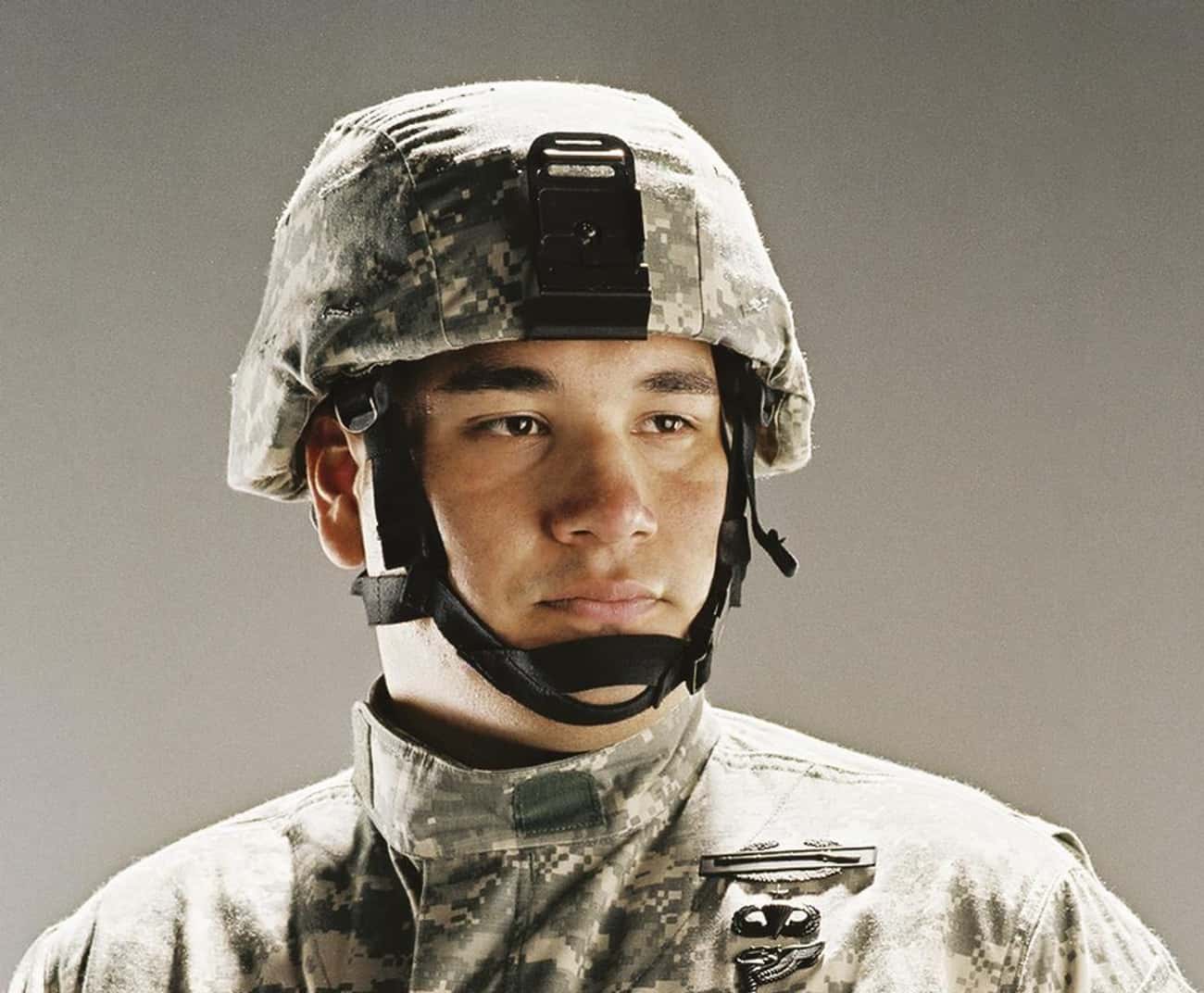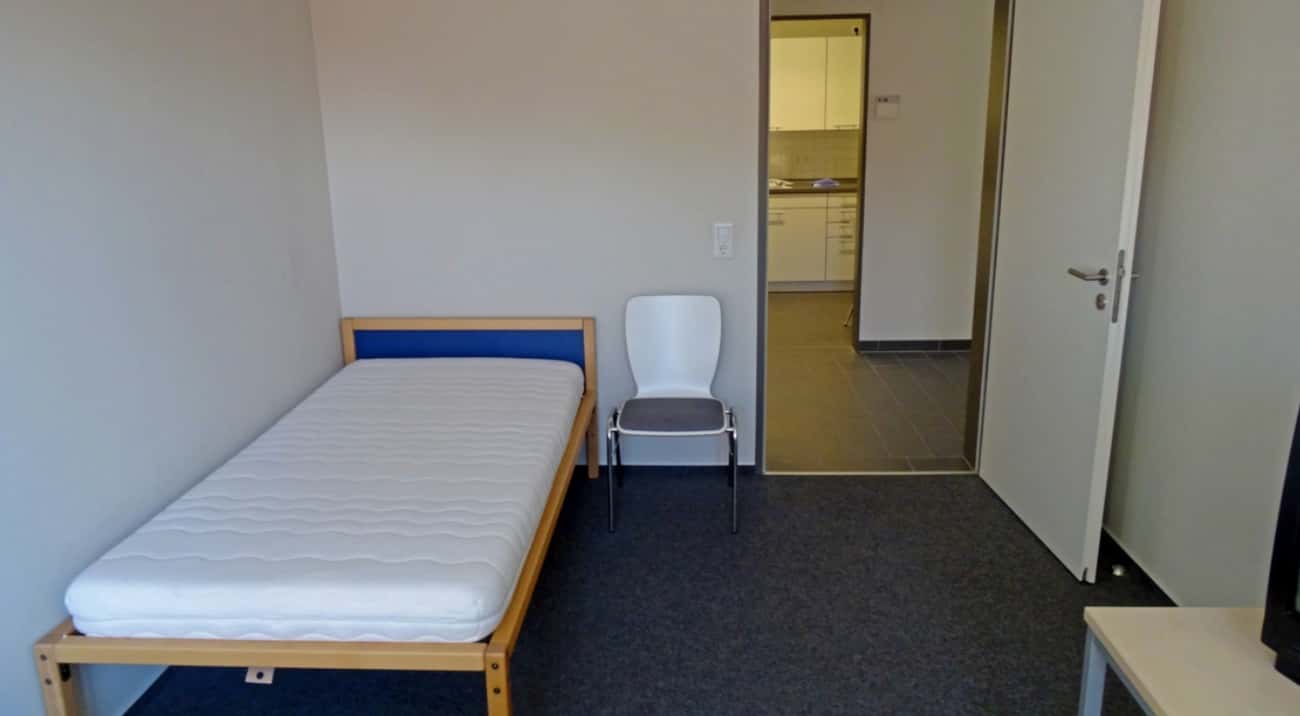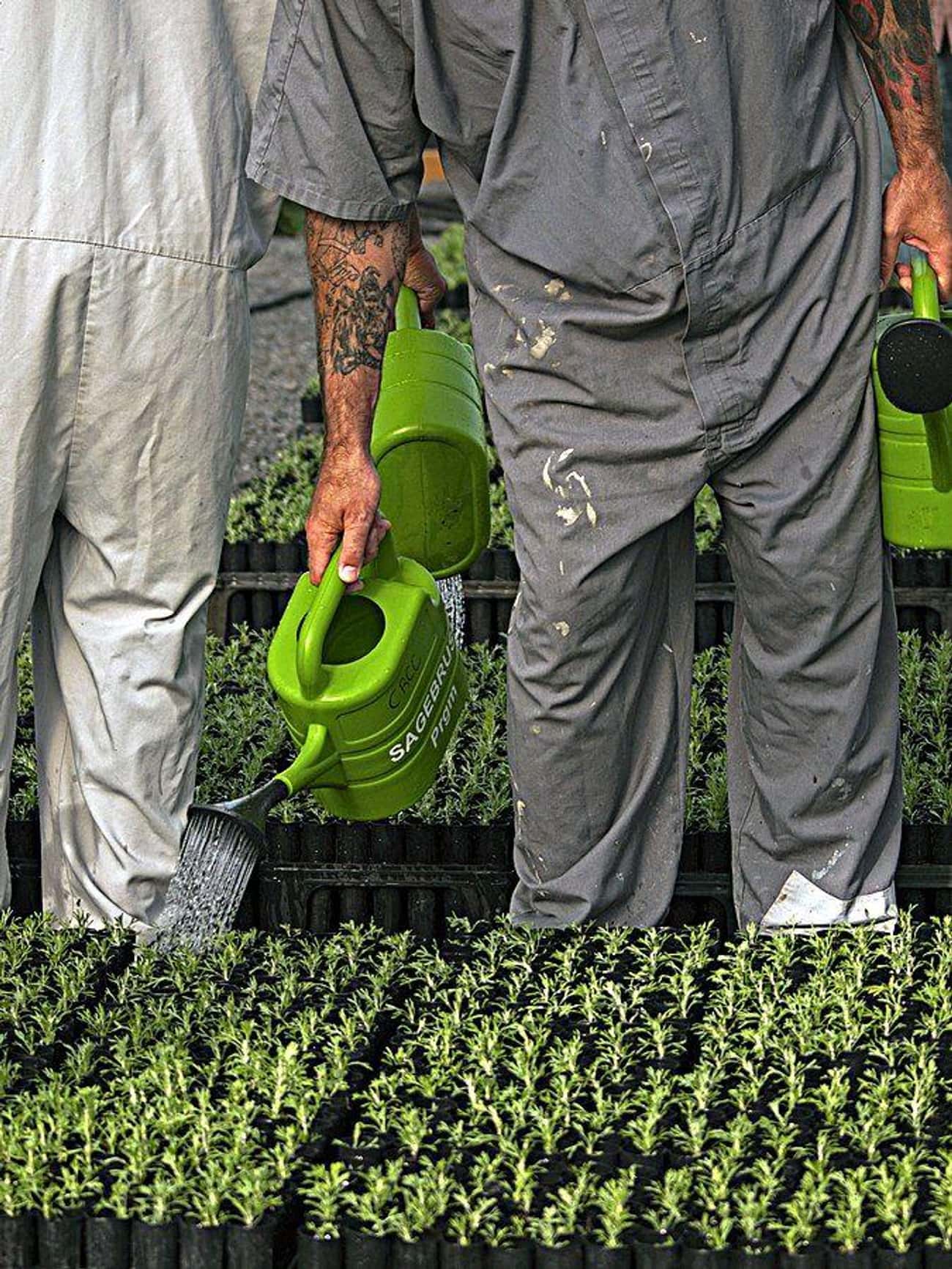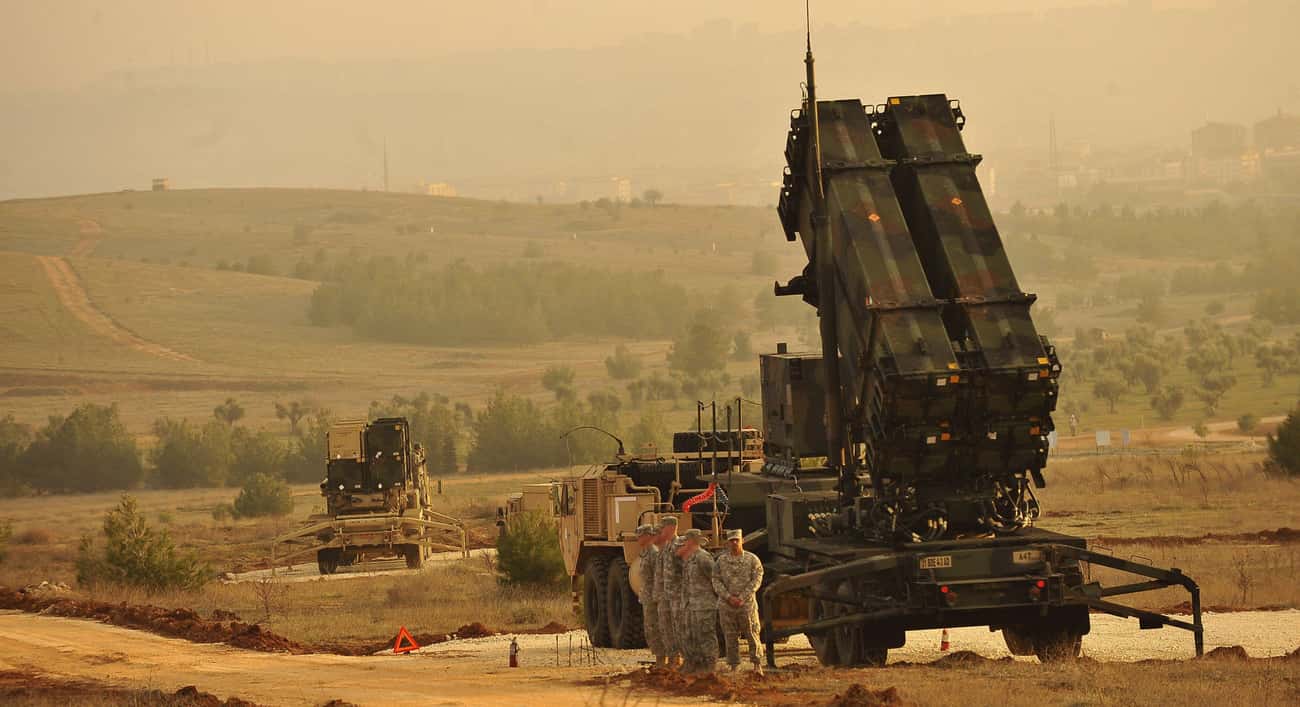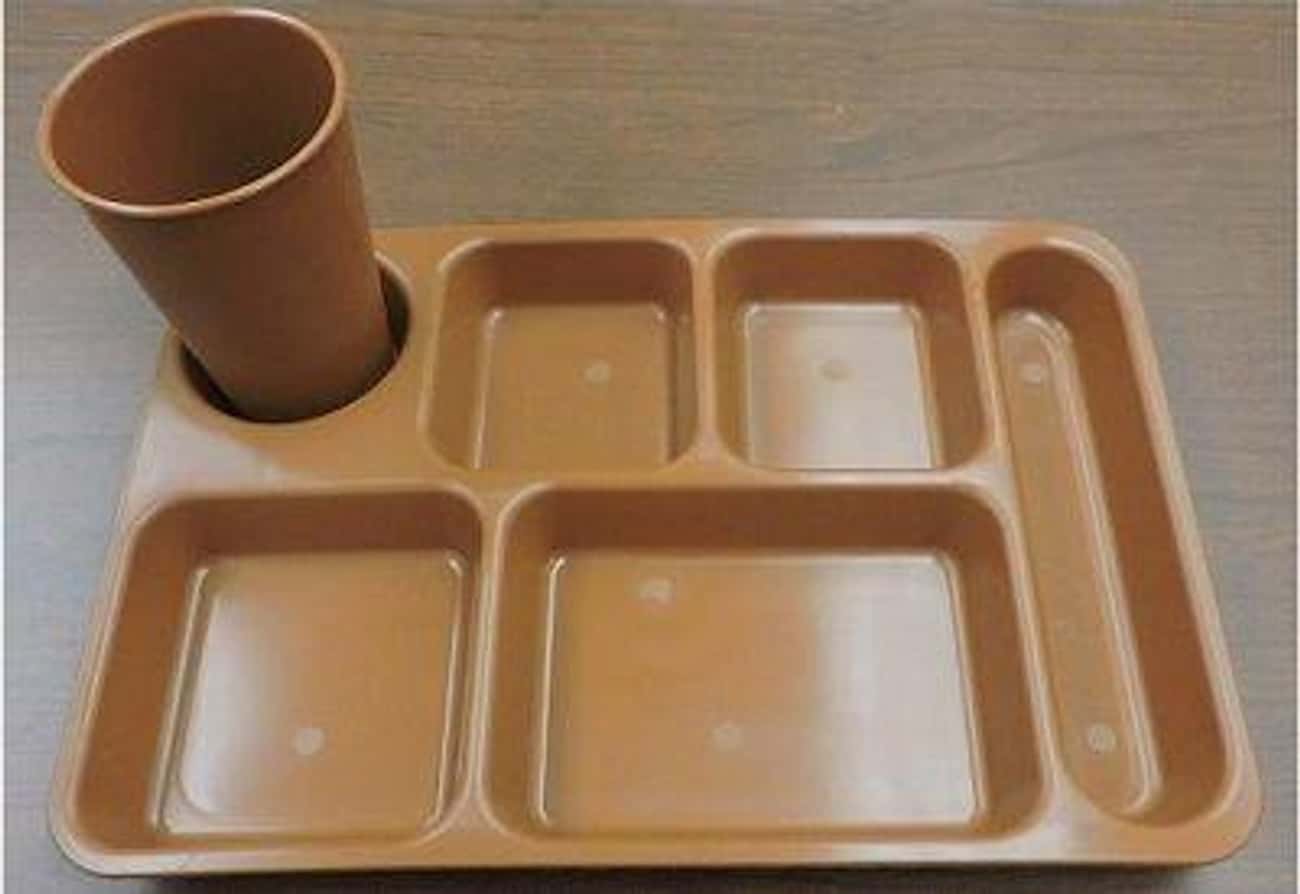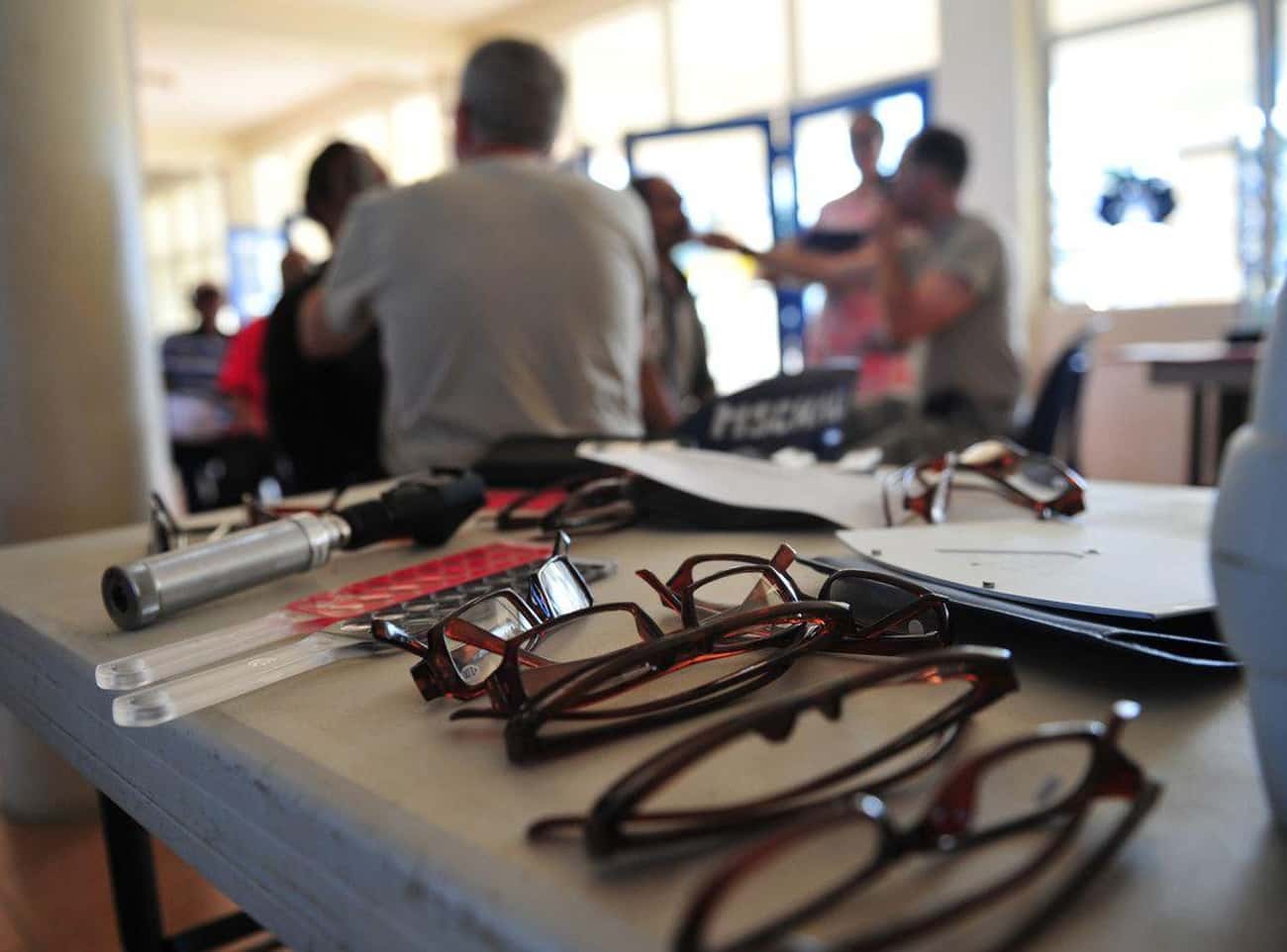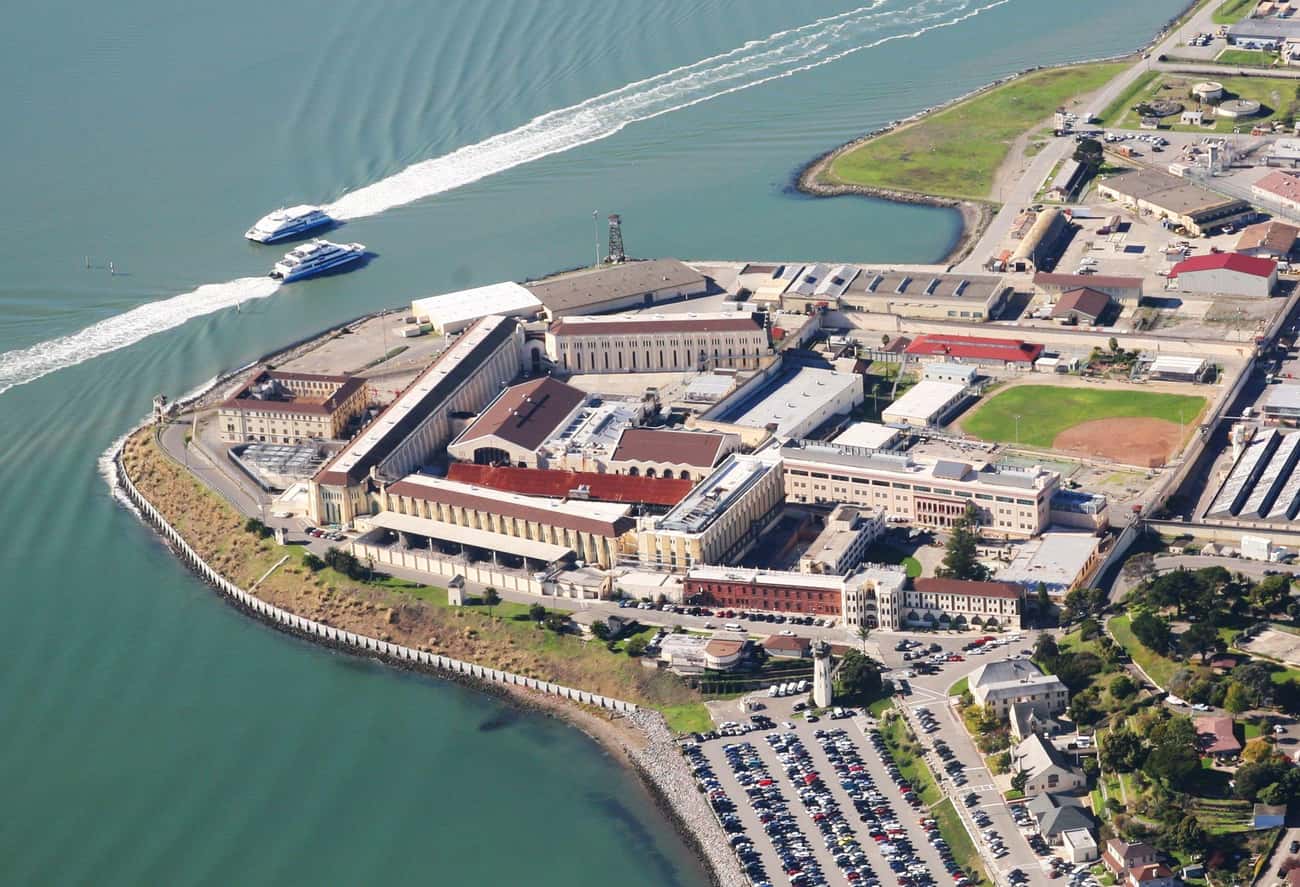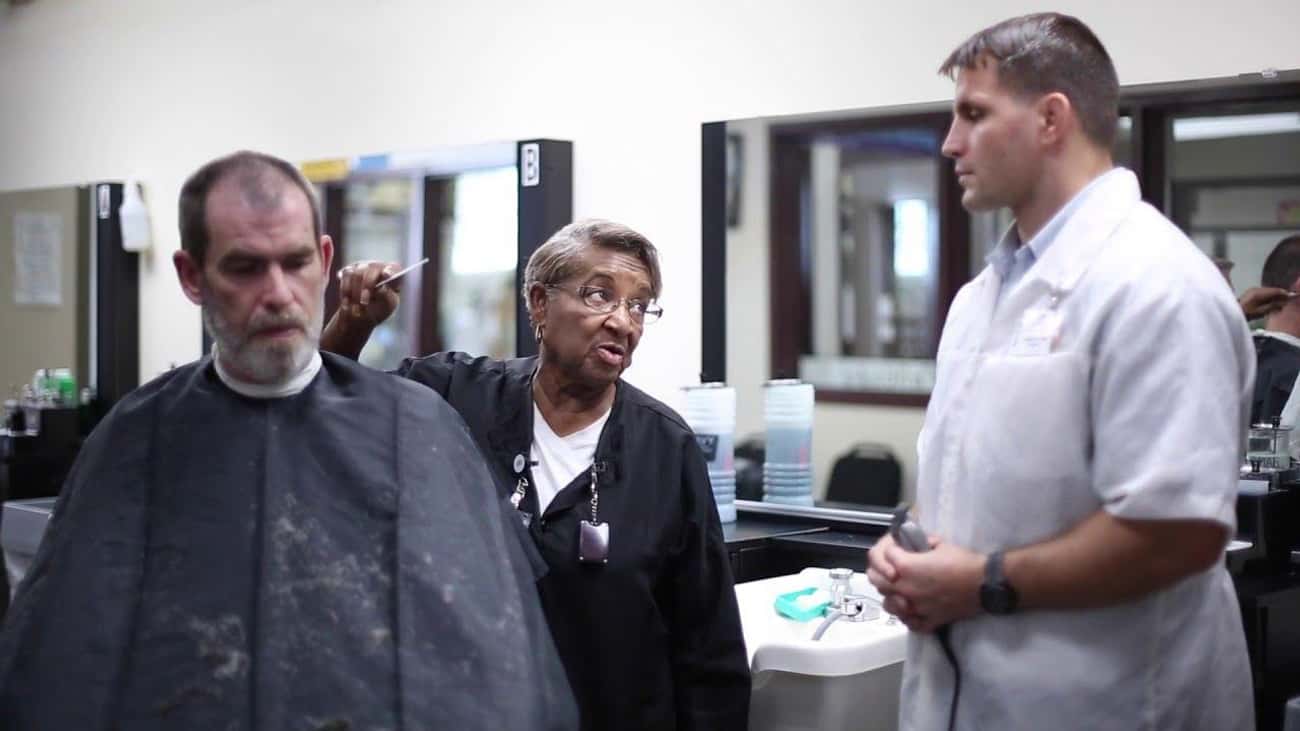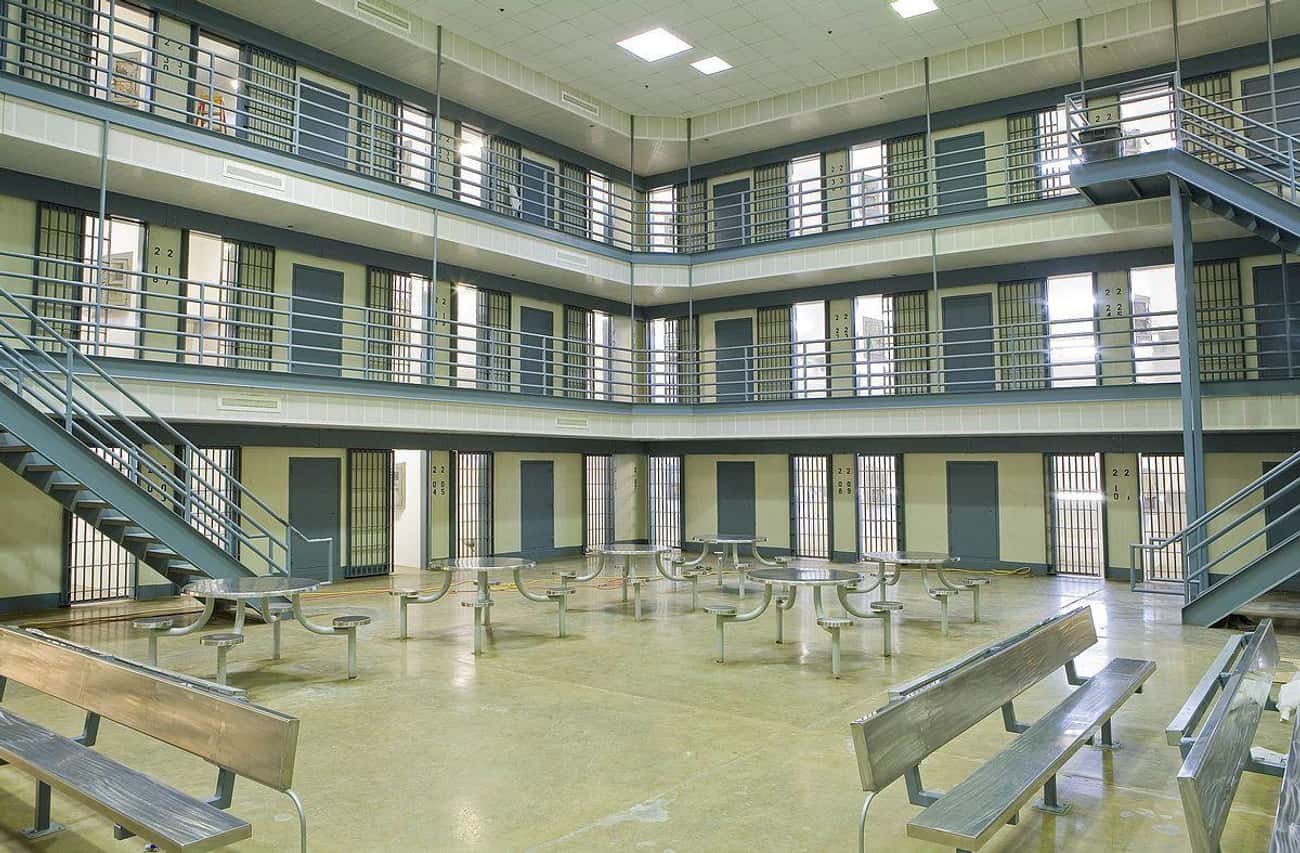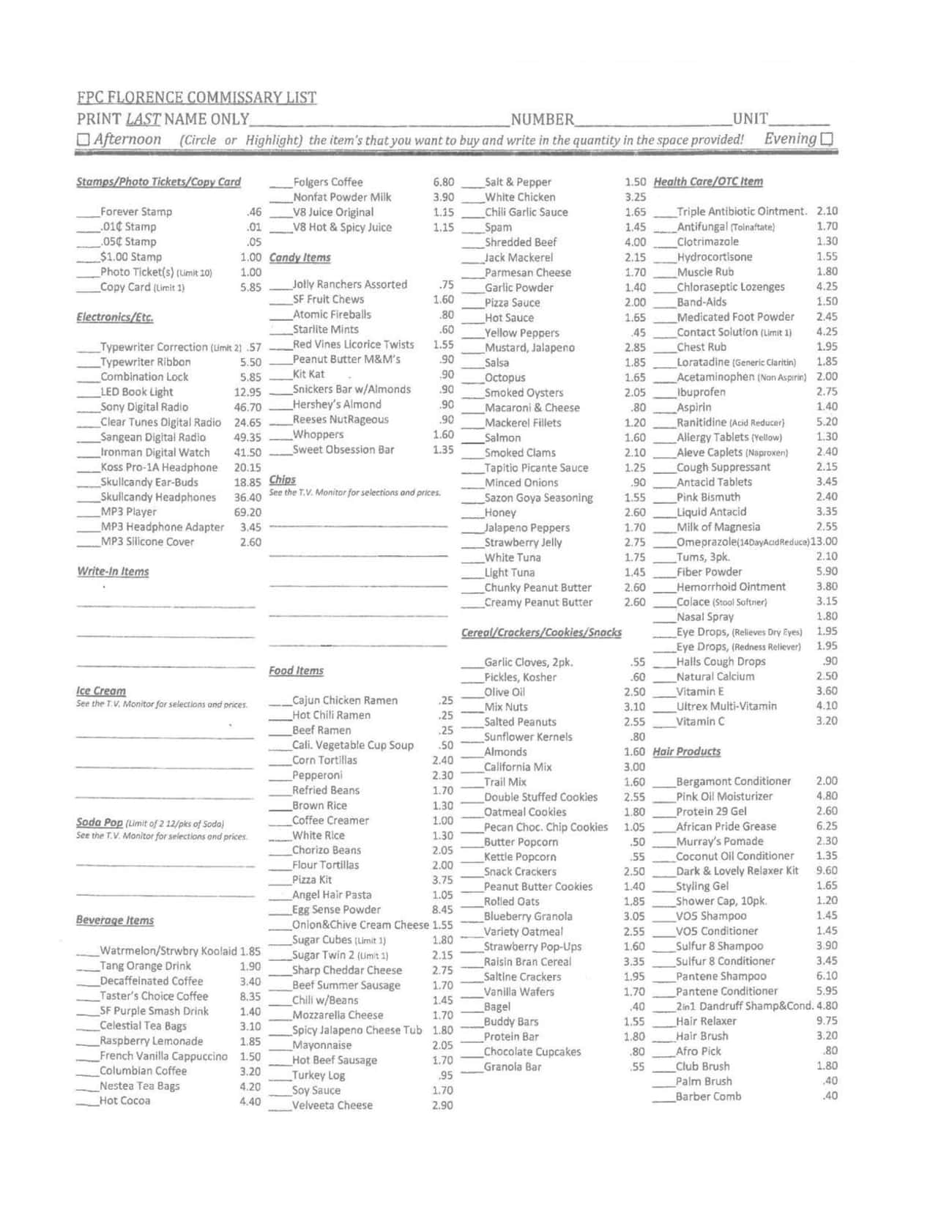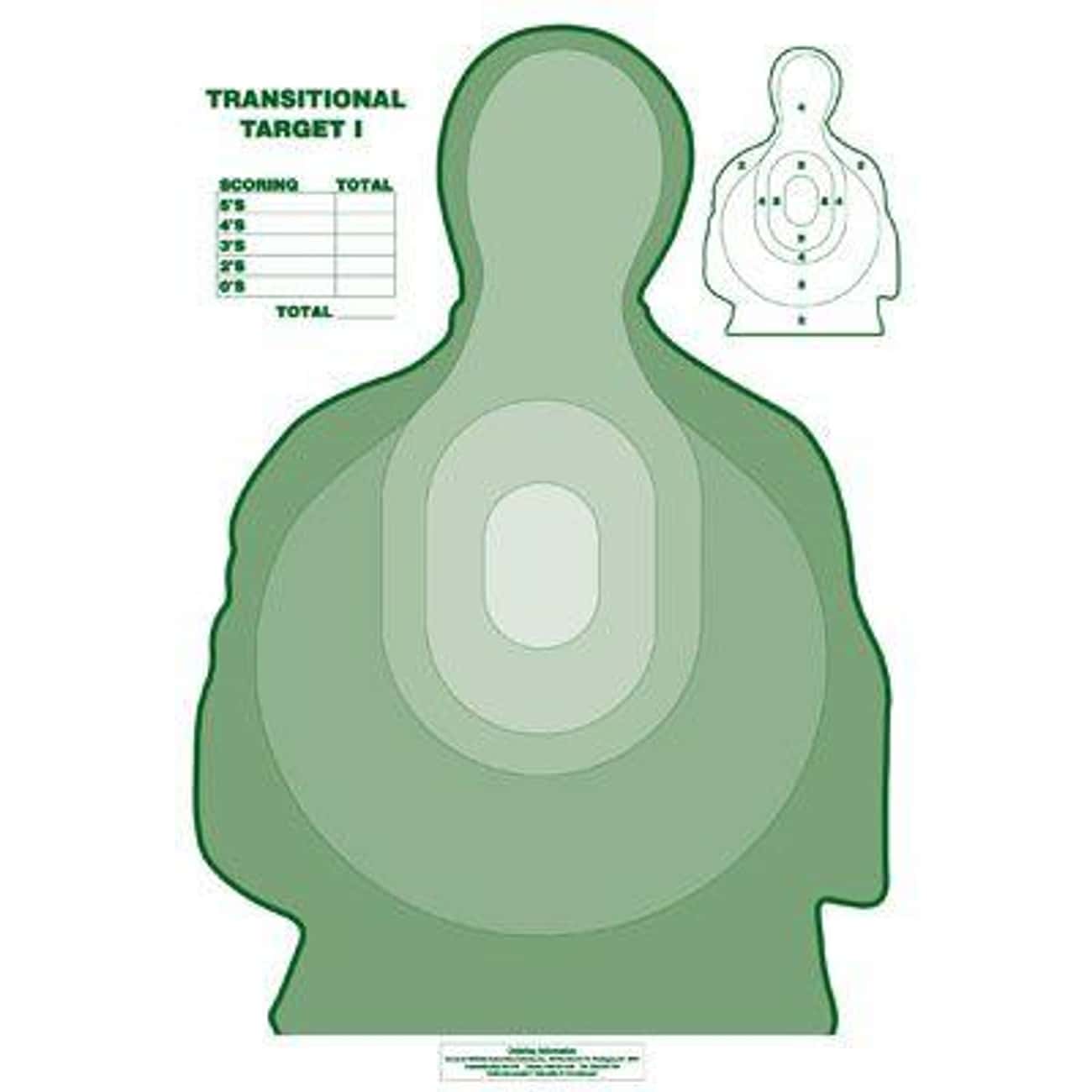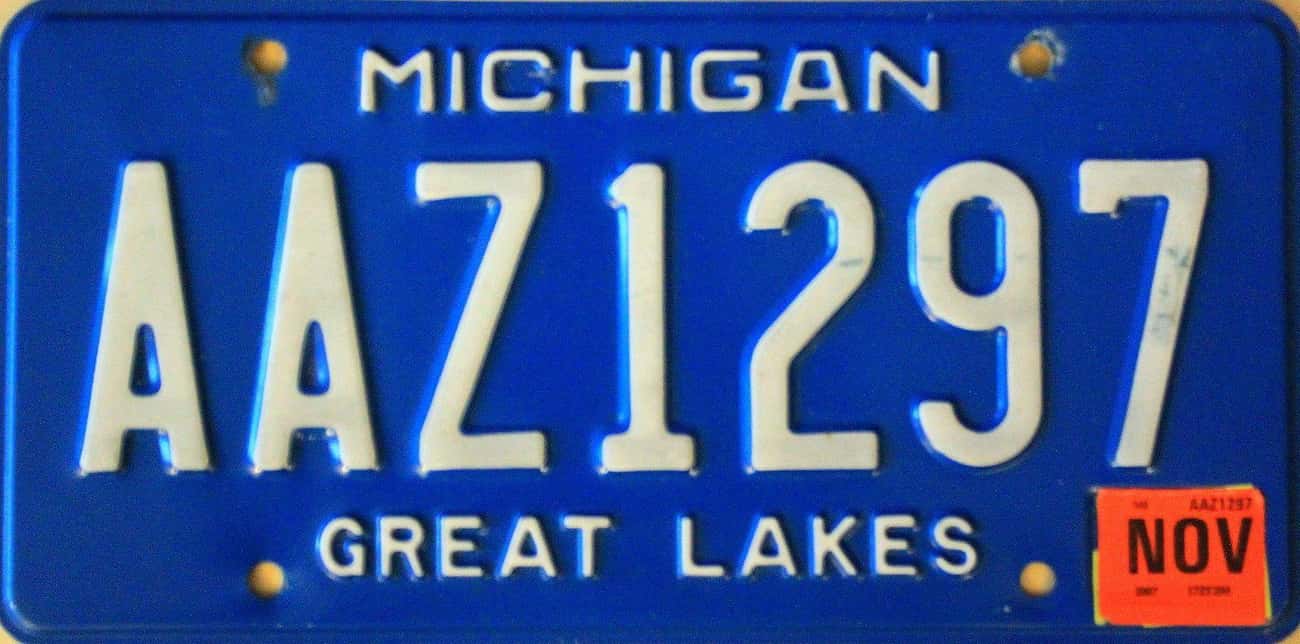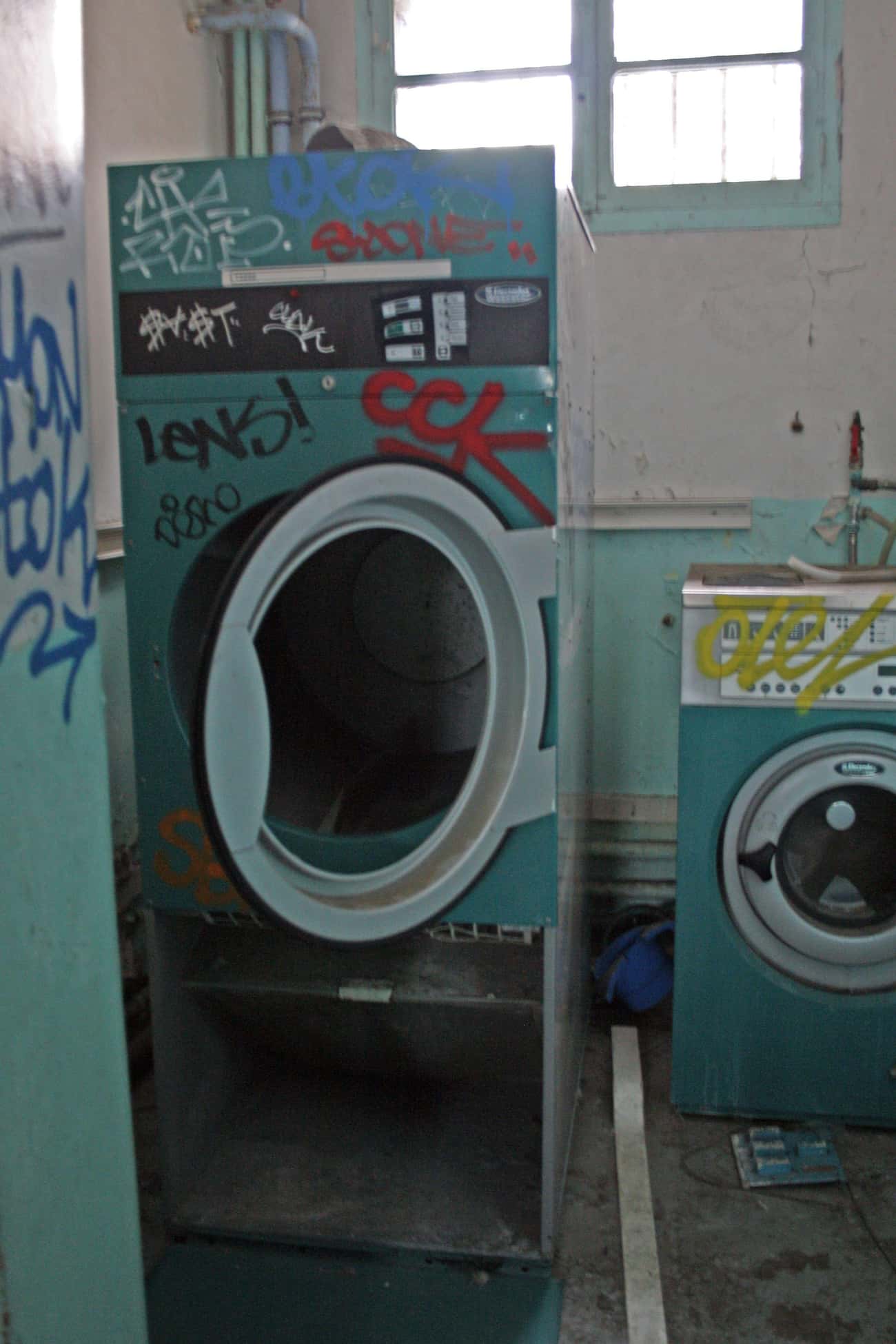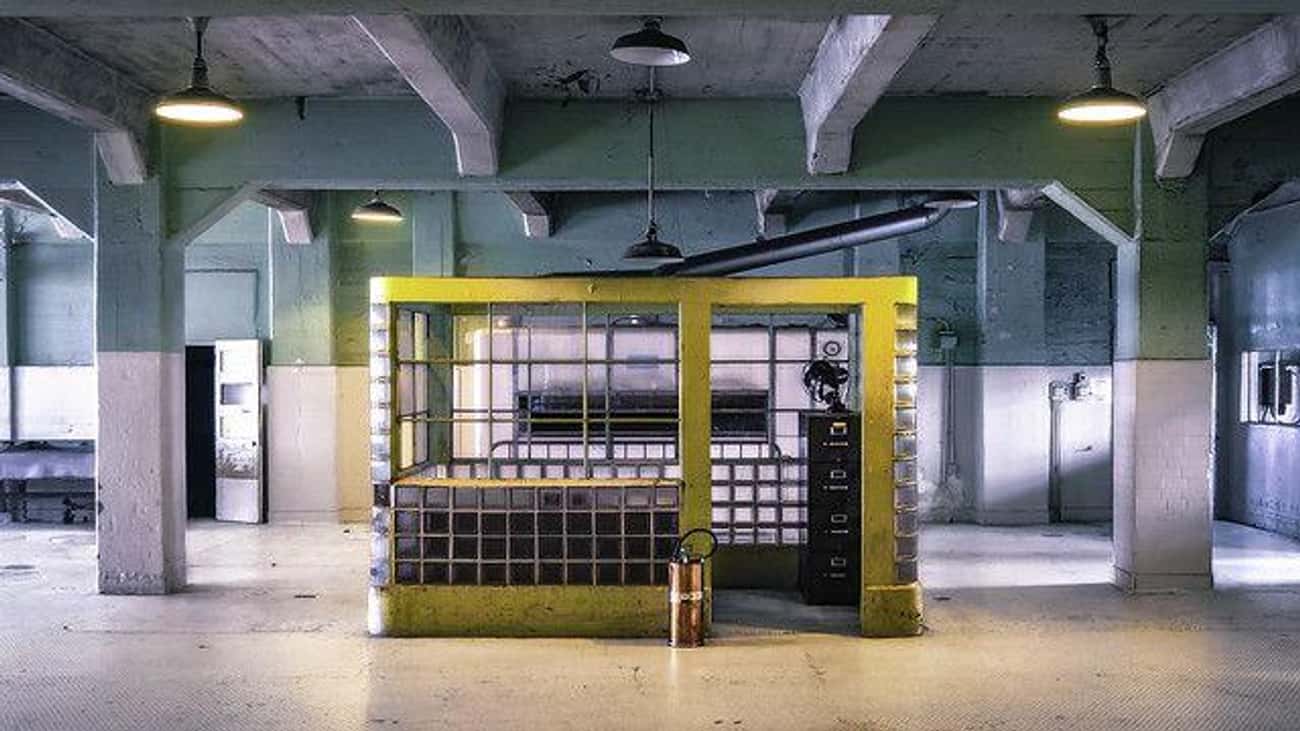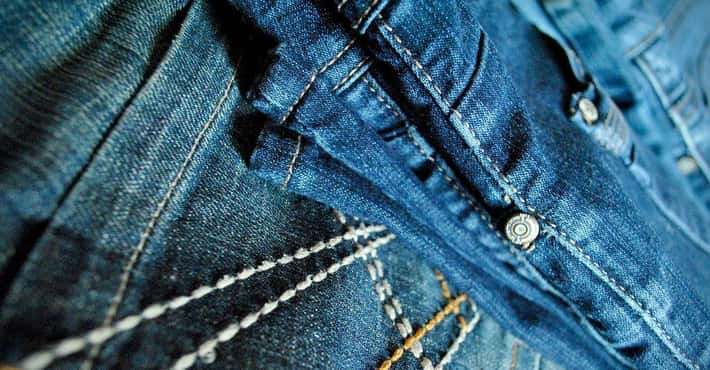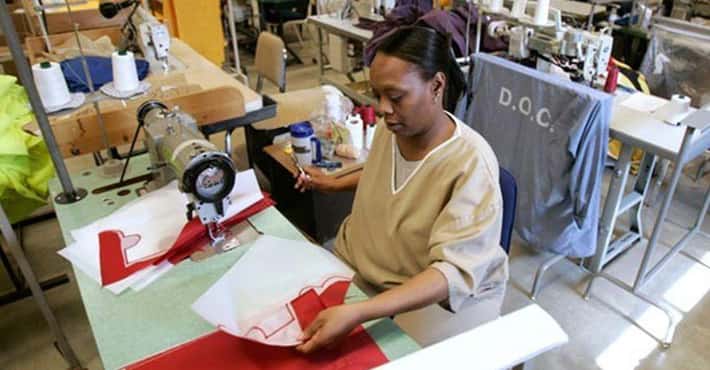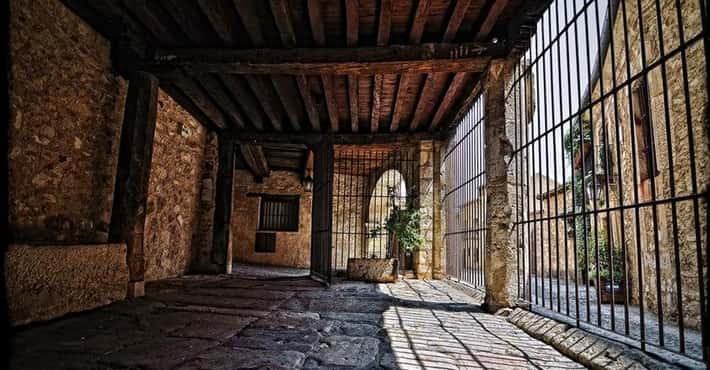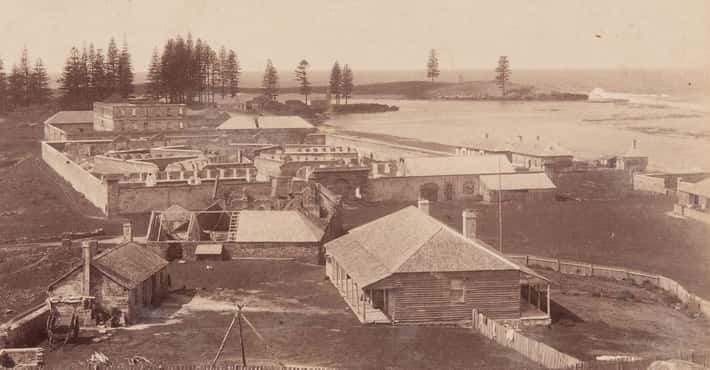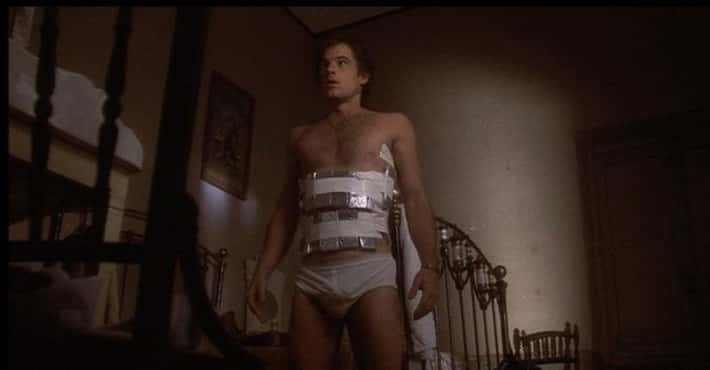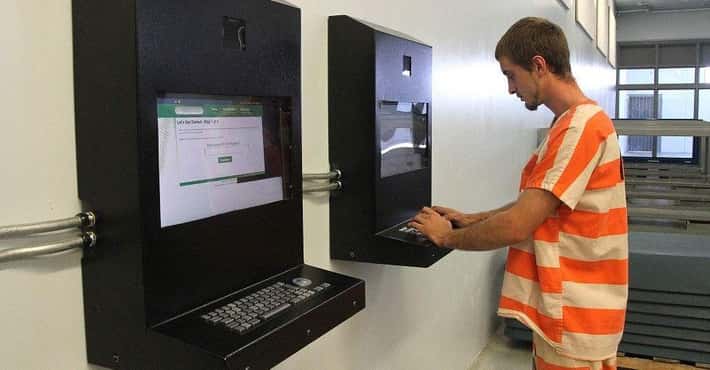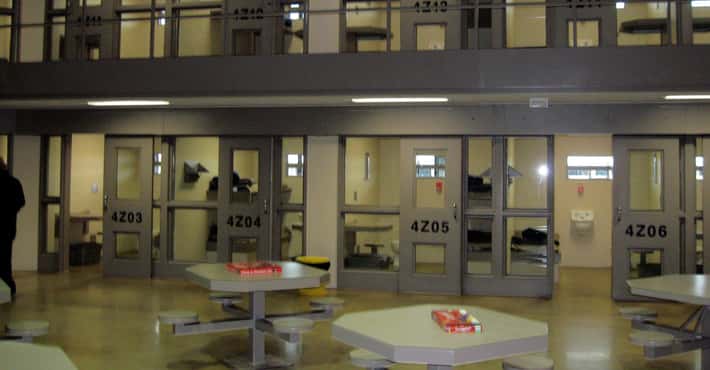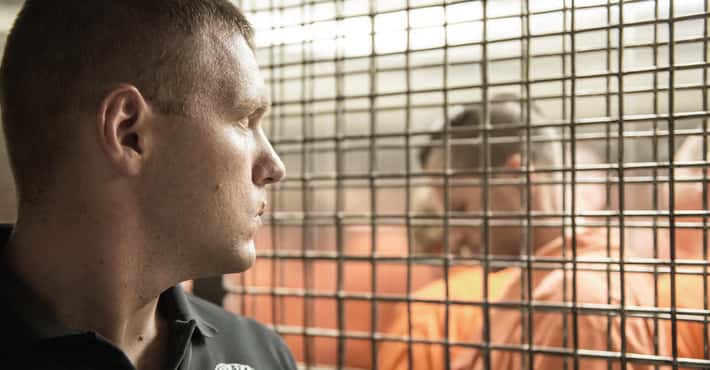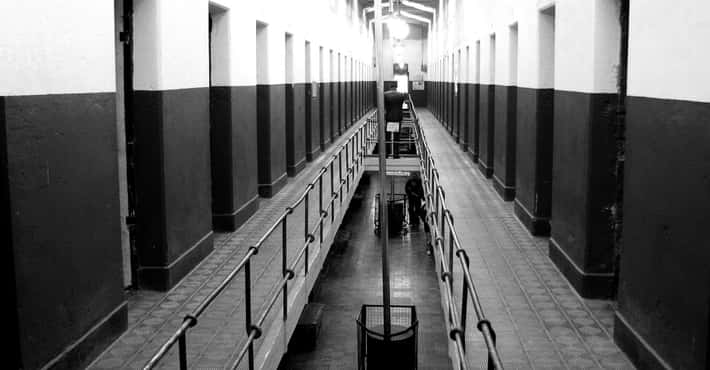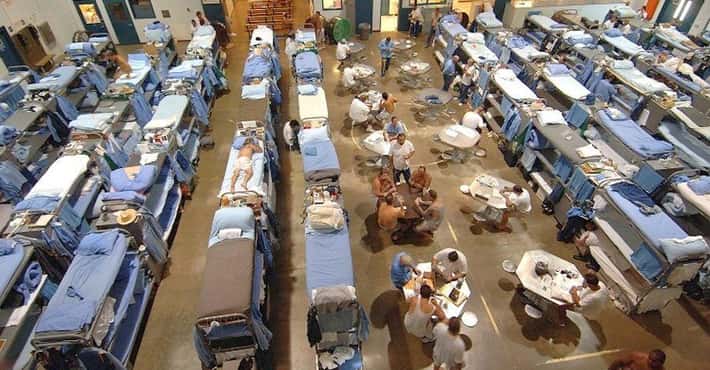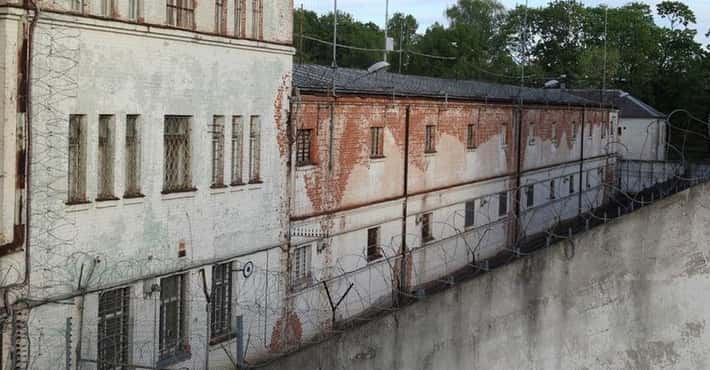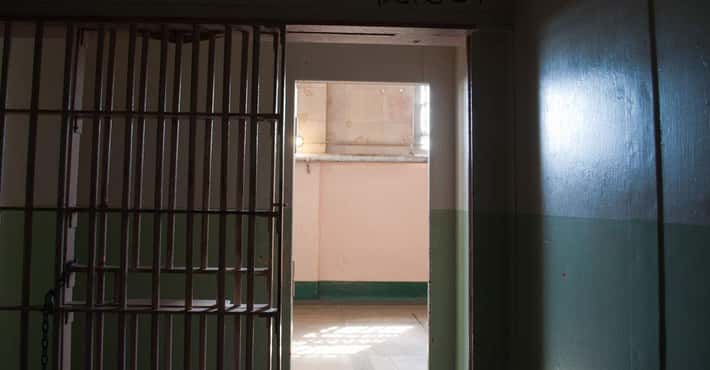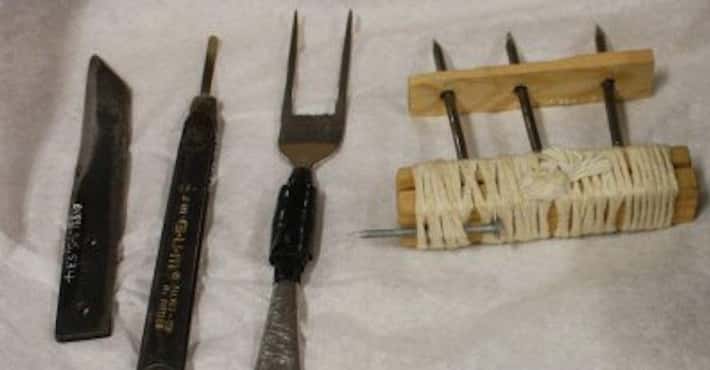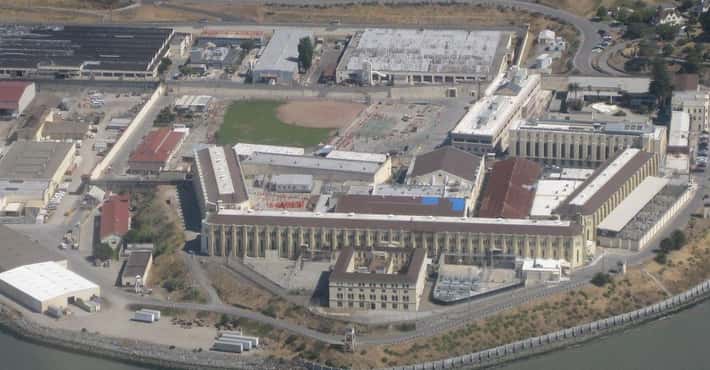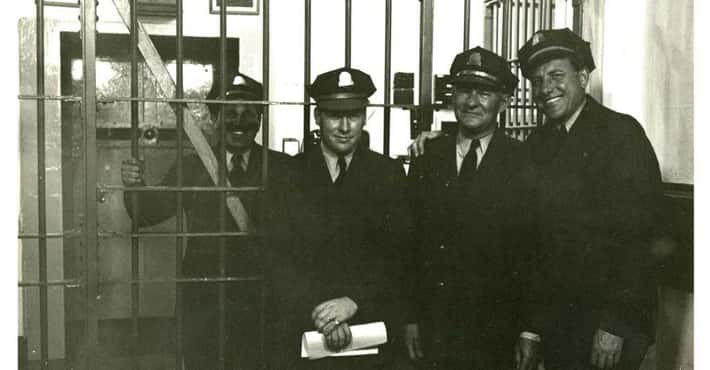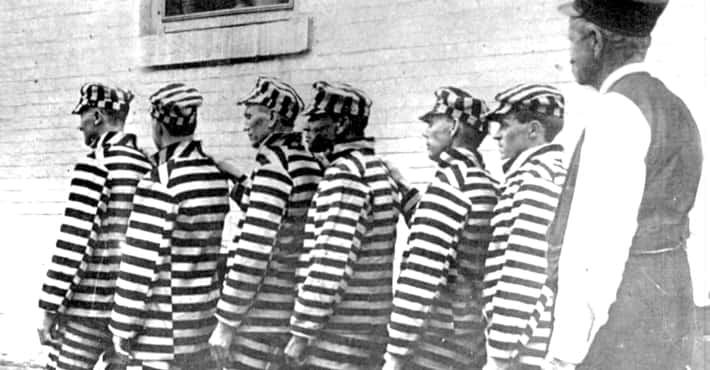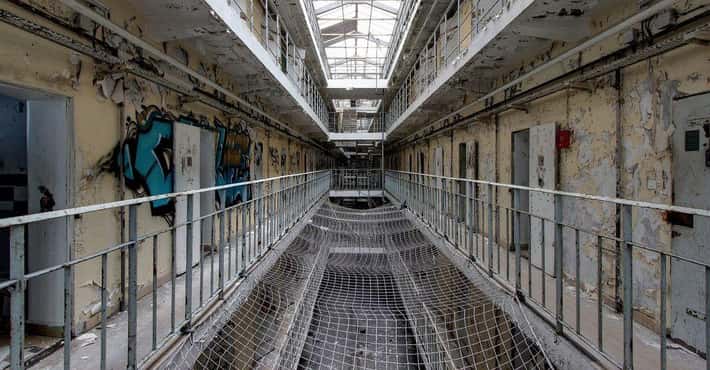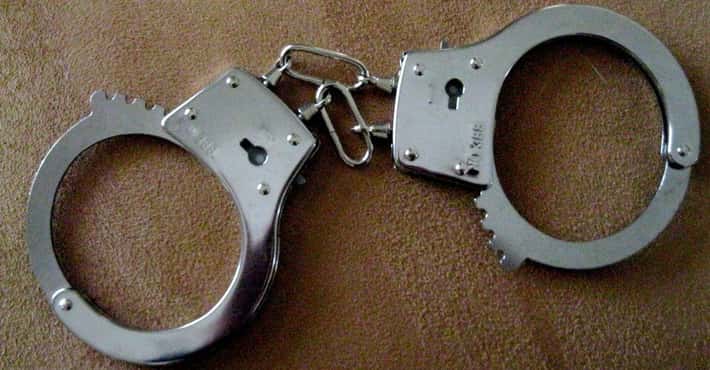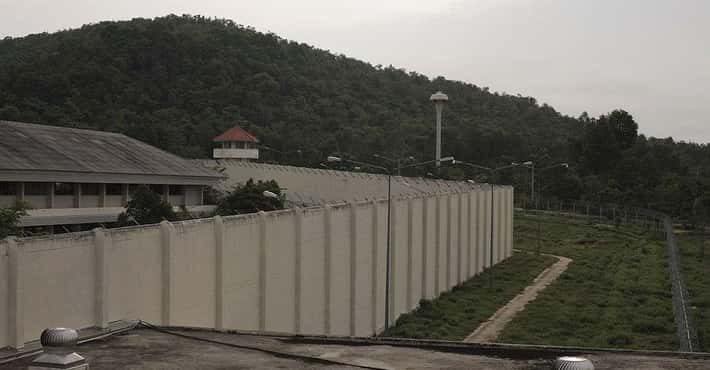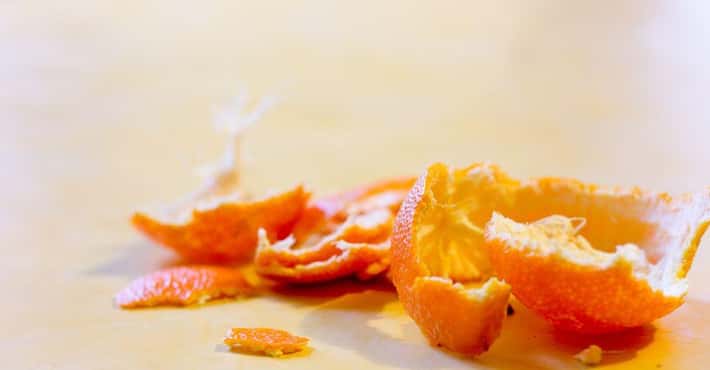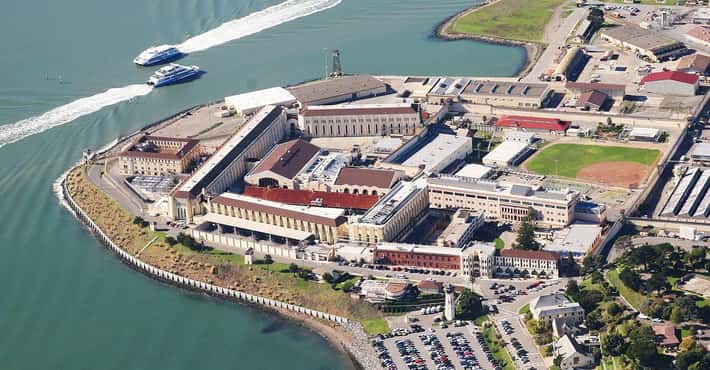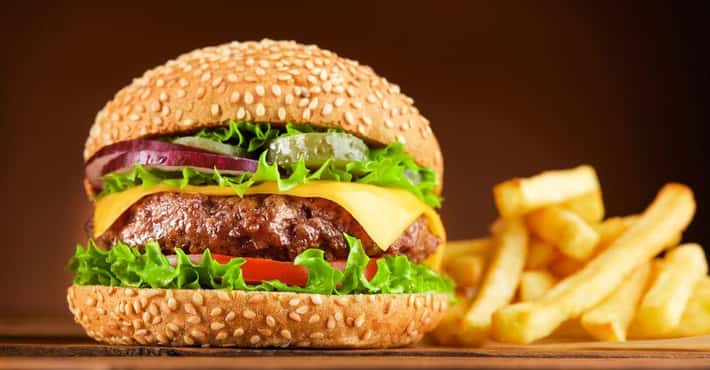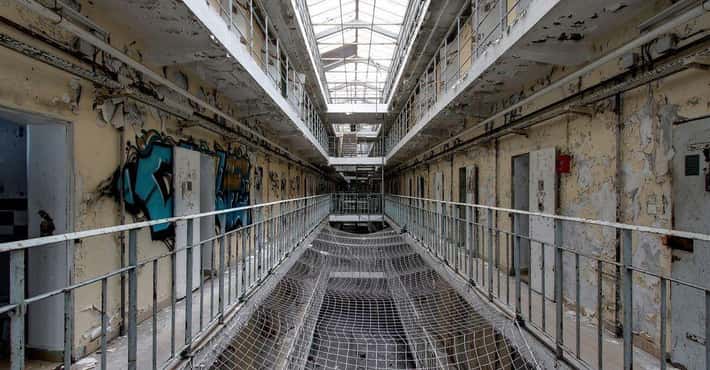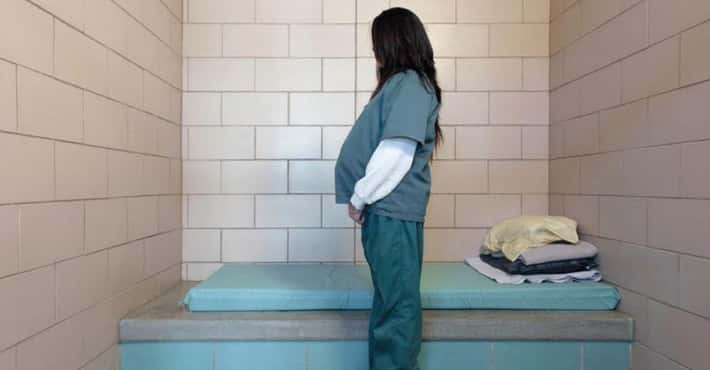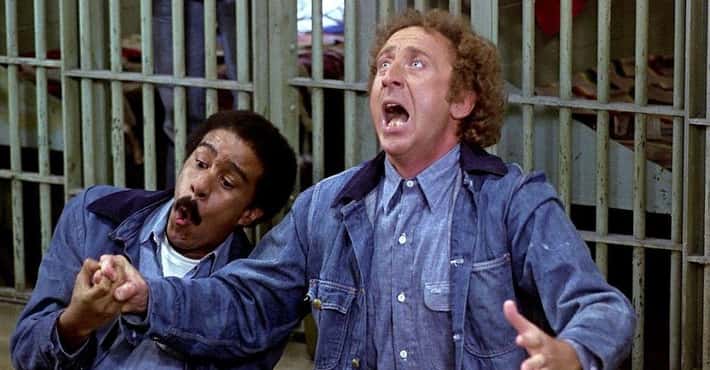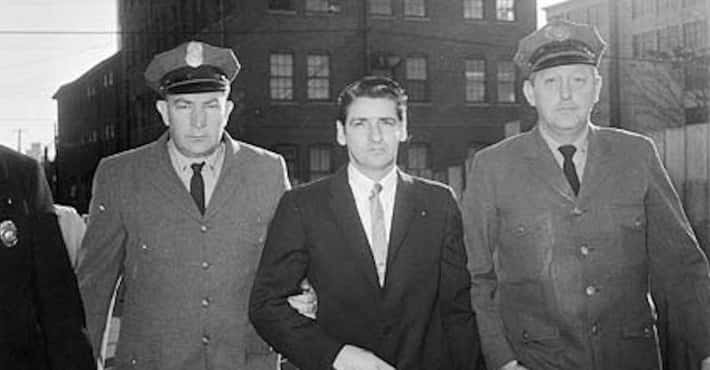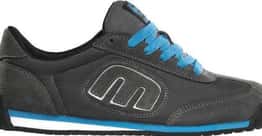All The Different Jobs Prison Inmates Do
- Photo: E min e / Wikimedia Commons / CC BY 4.0
Transcribe Textbooks Into Braille For The Blind
One of the more altruistic jobs available to inmates is transcribing books and other printed documents into braille for the visually impaired. Textbooks are among the most common kinds of documents to be translated, and the National Prison Braille Network is dedicated to facilitating these services.
The organization also works to help inmates get jobs in text transcription after their release.
- Photo: US Army / Wikimedia Commons / Public Domain
Manufacture Military Equipment And Uniforms
Some inmates manufacture equipment and clothing for the US military. The US Army has awarded contracts to companies like Federal Prison Industries to make impressive gear, including body armor. This backfired when a company named ArmorSource was forced to pay a $3 million settlement after shipping tens of thousands of defective military helmets.
The company that ArmorSource subcontracted to make these helmets was Federal Prison Industries.
- Photo: pxhere / Public Domain
Build College Dorm And Office Furniture
Inmates make a lot of goods, some of which you may have even slept on. If you lived in a dorm at one point, it's possible your mattress and adjustable bed frame came from UNICOR - a program dedicated to inmate reform via job training and practical work skills.
Prison-made mattresses can be found in dorms, hospitals, and even prisons themselves. You can shop online for these mattresses and other furniture directly from the UNICOR website. If you're looking for affordable office furniture, UNICOR can help with that, as well.
- Photo: Andrea Booher / Wikimedia Commons / Public Domain
Assist With Fighting Fires
Wildfire season can be devastating for California, and 2018 was a particularly rough year. About 9,000 firefighters were called to battle the infernos raging across the state, and a whopping 1,500 of them were prison inmates. Prisoners who volunteer to fight fires are offered $2 a day with an additional $1 per hour of service.
Volunteering for the fire fighter program can lead to reduced sentences. Convict Daniel Erickson had his sentence reduced by a full year the first time he fought a fire, and he spent five years in the program. In an interview with NPR, Erickson said, "Was I scared at times? Yes, but I've been scared in the regular prison setting more so than on the fire line."
Fire fighting is a dangerous job for anyone. Six inmates have lose their lives in the field since 1983, and there are concerns that this amounts to unfair labor. Inmate fire fighters receive the same basic training any volunteer fire fighter would get, allowing them to learn the skills needed if they want to pursue the career upon their release.
Grow Corn And Other Crops And Plants
Being in prison doesn't necessarily mean you have to spend all your time indoors. Some inmates get to enjoy the fresh air, although they're often toiling in the hot sun. Agriculture is one of the fields inmates can find work in, and Colorado convicts have been working with crops since 1874.
Colorado Correctional Industries employs up to 800 prisoners every year on 560 acres of farmland, the vast majority of which is used to grow corn.
- Photo: Department of Defense by Glenn Fawcett / Wikimedia Commons / Public Domain
Manufacture Electronics Components And Other Products For The US Department Of Defense
UNICOR employs roughly 20,000 inmates. Many prisoners employed by UNICOR manufacture products for the Department of Defense. These employees make electronics as well as parts used in Patriot missiles. This particular job is a bit controversial, but the controversy doesn't stop companies like Raytheon and Lockheed-Martin from capitalizing on it.
UNICOR can make up to $772 million a year, largely due to contracts with federal agencies like the Department of Defense. Of that sum, only 5% goes into the pockets of the prisoners doing the work.
- Photo: UNICOR
Make Utensils And Serving Trays For Large Food Service Operations
While prisoners may not always be trusted to use certain utensils, they are allowed to manufacture them. You can get a full set of UNICOR dinnerware directly from the program's website. These products can be sold to large scale food service operations.
They also make trays and cups, although the simple tan styling means you likely won't be having the fanciest of meals.
- Photo: UNICOR
Create Awards And Plaques
Some prisoners create awards and plaques. These aren't just Little League trophies either - they are serious crystalware that is laser-engraved and designed by inmates.
UNICOR offers a variety of different awards including certificates, trophies, plaques, and even custom-engraved clocks.
- Photo: US Centers for Disease Control and Prevention / Wikimedia Commons / Public Domain
Assist Disabled Inmates
Another altruistic job available to some inmates is aiding disabled prisoners. This duty is often performed in addition to other work. Aides can help wheelchair-bound inmates move around the facility, or they can be mental health companions for those with additional needs.
In some extreme cases, inmates can assist with watching over those who may be a threat to themselves and help ensure that at-risk prisoners are safe.
- Photo: Staff Sgt. Rachelle Coleman / US Air Force / Public Domain
Make Glasses And Goggles
UNICOR uses prison labor to manufacture a variety of goods. They even sell prescription eyeglasses, which come in a variety of styles. You can contact inmates at UNICOR's North Carolina factory for specific requests.
You can also purchase other eyewear including safety goggles, welding masks, and industrial face shields.
- Photo: UNICOR
Design And Make Signs
Signage is another major industry that is largely supported by prison labor. Everything from traffic signs to construction signs and even department-specific signs are made by prisoners. Next time you're in a park and see Smokey the Bear, remember it was likely an inmate that put that together.
You can shop for UNICOR's available signage directly from their website.
- Photo: Jitze Couperus / Wikimedia Commons / CC BY 2.0
Craft Knickknacks To Sell At The Prison Gift Shop
San Quentin State Prison in California has its own gift shop - a rarity among penitentiaries. San Quentin is notorious for its capital punishment, but also sells charming knickknacks made by the prisoners themselves. The prison has housed some of the most infamous offenders in history including Charles Manson, Richard Ramirez, Scott Peterson, and Stanley Tookie Williams.
Items available in the shop include music boxes, money clips, t-shirts, mugs, and more.
- Photo: TheColumbusDispatch / YouTube
Cut Hair
Inmate barbers are relatively common, and they can often be some of the most popular people in prison. Haircuts are rare and many inmates only have access to them once a month. Prisoners are, however, allowed a haircut the day before they appear in court.
For many prisoners, haircuts are a luxury and are highly valued. Barbers are respected, and friendly conversation is abundant. Some prisons have even started setting up in-house barber schools for inmates who may want to pursue a career in hairstyling upon their release.
- Photo: National Park Service / Public Domain
Serve As Call Center Customer Service Representatives
The next time you're talking to a customer service representative, keep in mind that you may be talking to a prison inmate. UNICOR has set up several call centers in prisons, with inmates taking calls and answering questions both for the prison and on behalf of private corporations.
This practice has stirred some controversy in the business community, with workers finding it unfair that they have to compete for their job with inmates making less than a dollar an hour. Many of these jobs were slated to be outsourced prior to the inmate program, but that fact is of little comfort to out-of-work call center employees. UNICOR advertises this service as, "Domestic outsourcing at offshore prices."
- Photo: Gordon Incorporated / Wikimedia Commons / CC BY 2.0
Help With Prison Facilities Maintenance
One of the most common jobs inmates do is assist in the operations of the prison itself. This includes facility maintenance like janitorial work and groundskeeping. Many prisons have electrical shops, plumbing shops, paint shops, and more.
Inmates typically work under a staff foreman who organizes his workforce and assigns duties.
- Photo: Bureau of Prisons / Wikimedia Commons / Public Domain
Inventory And Stock Merchandise At The Prison Commissary
For those unfamiliar with day-to-day life in jail, the commissary is a prison store where inmates can buy items like food, drinks, hygienic products, and more. The commissary is often staffed by other inmates who keep the store stocked and maintain the inventory. These employees can order requested items but they are not allowed to work the registers. They are responsible for cleaning the commissary, as well, and work with the prison staff to keep it running.
These jobs can pay well relative to other duties, but inmates must work long hours in a stressful environment.
- Photo: UNICOR
Design, Print, And Bind Calendars And Envelopes
Prisoners make all kinds of paper products, including firearm targets, planners, calendars, and envelopes. Another responsibility for these working inmates is paper binding, which means wrapping stacks of large paper in plastic for safe shipping.
- Photo: State of Michigan / Wikimedia Commons / Public Domain
Manufacture License Plates
It is common knowledge that prisoners make license plates. In the state of Michigan, prisoners are responsible for creating 100% of all license plates. In fact, in Michigan alone, prisoners make up to 2.5 million license plates a year.
Impressively, that work is done by a total of just 52 inmates.
- Photo: jolienvandegriendt / Wikimedia Commons / CC BY-SA 2.0
Collect, Wash, Dry, And Mend Prison Laundry
Prisoners are responsible for a lot of the day-to-day operations of the prison itself, and that includes laundry. Prisoners on laundry duty don't just wash clothes; they may perform clothing alterations and sewing, and they can also be expected to mend clothes when the need arises.
Their primary duty, however, is to collect inmate laundry from around the prison, wash and dry all items, and then return them to their proper owners. It's grueling work and takes up a lot of time, but laundry work allegedly pays well compared to other jobs.
- Photo: Ian D. Keating / Flickr / CC BY 2.0
Prepare And Serve Prison Food
One of the more common jobs available to inmates is kitchen work. It is difficult work, however, and there are high expectations for prison cooks. In North Carolina alone, inmates are responsible for preparing 90,000 meals a day. There are 2,000 cooks in the state working in 92 different prisons.
These meals cost about 68 cents each, so it's hard to make something satisfying on that type of budget. Sometimes these workers take on eight hour shifts for minimal pay, but someone has to feed the residents.


